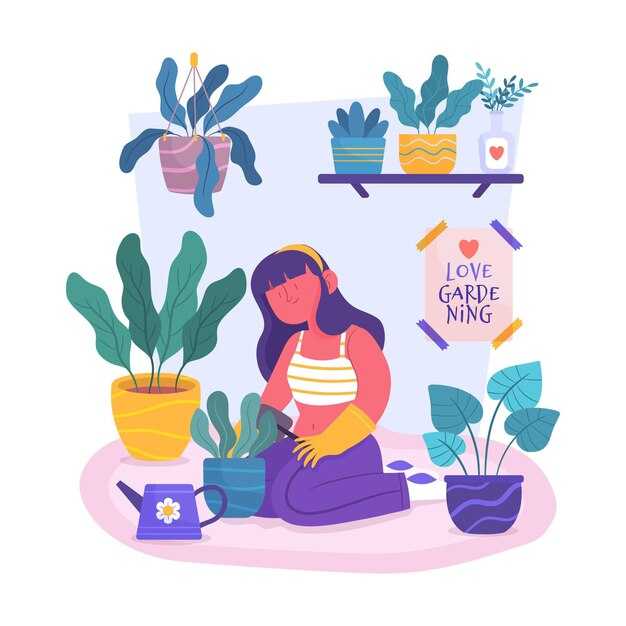The uncomfortable reality is that “nice guys” often don’t spark attraction in women. I know how that sounds, so hear me out for a minute before you react—this isn’t an attack on genuine kindness. Thoughtfulness, consideration, and sincere care absolutely matter. I also don’t buy into the idea pushed by some so-called “alpha” guys that treating women coldly or with deliberate indifference magically makes you appealing. That mindset runs counter to everything I advocate. So what exactly do I mean when I say women aren’t attracted to “nice guys”?
Today the phrase “nice guy” usually describes a man who is constantly agreeable, endlessly accommodating, and habitually puts someone else’s happiness before his own. He gives, sacrifices, and submits—thinking that if his partner is happy, he is too. At first glance that might seem like the antidote to narcissism, but it’s actually the opposite extreme: where narcissism is excessive self-focus, the “nice guy” is excessively self-erasing. And that level of selflessness can be unhealthy and unattractive.
A classic “nice guy” doesn’t merely avoid conflict—he stays silent from fear of rejection. He’s passive and often lacks confidence in his choices, which broadcasts insecurity. Whether we want to admit it or not, many women can pick up on that anxiety. When a man seems to need his value validated by someone else, he comes across as needy, and neediness rarely creates desire. I know this because I spent most of my life being that guy.
The nice guy frequently stifles his own emotions and needs to be chosen and liked. If you’re watching this and identify with that description, don’t take it as judgment—I am you. I’m sharing what I wish someone had told me. You deserve someone who gives to you as well, someone who treats you with respect and doesn’t excuse harmful behavior by blaming you. If you’re often feeling walked over or taken for granted, that’s not surprising. You avoid appearing needy by defaulting to pleasing others, hoping never to be seen as a burden. But those efforts rarely get reciprocated, and when that happens you internalize it: Am I not enough? Why won’t they care for me the way I care for them? That slow build of resentment is predictable.
Expecting mutual effort in a relationship is not unreasonable—you should be with someone who matches your contributions. Relationships require two people doing the work. The problem emerges in how you frame your expectations. A nice guy sacrifices and pretends it’s purely generosity, but when things don’t go his way he sulks and grows bitter. True generosity doesn’t hinge on reciprocation; it comes from love regardless. That said, when someone repeatedly fails to reciprocate, you don’t respond with bitterness—you choose how much time, energy, and attention you will continue to give. That’s called setting boundaries. It’s maturity.
When niceness becomes a tool for expecting entitlement—when you use it to manipulate others into behaving a certain way—that’s unattractive too. Women are drawn to men who aren’t afraid to declare what they want in a partner and in life. Not in a domineering way, but in a confident, assertive one. One major reason “nice guys” don’t generate attraction is that they often aren’t showing up honestly; people can sense something is off because the “nice guy” is too afraid to be the real him. Authenticity is magnetic—women prefer knowing who you genuinely are, even if you aren’t their usual type, because then they can choose knowingly.
I’m not trying to discourage you—I’m trying to encourage you. You aren’t broken or hopeless. I still wrestle with the “nice guy” tendencies, but I want to warn you: believing that constant selfless service is what women want is both false and harmful. Being a relentlessly giving person typically leads to one of two outcomes. Either you attract someone who takes—a narcissist, self-centered person, or addict—who will increasingly take advantage and never truly change, leaving you wondering how to make them treat you better and doubting your worth; or you end up with a partner who is capable of a healthy relationship but doesn’t feel that spark because your people-pleasing has erased the sense of equality and challenge that often fuels attraction. In both cases you end up feeling unfulfilled and questioning yourself.
Most women, excluding those who are themselves unhealthy or unhealed, don’t want a doormat. They want an equal, someone who stands up for himself and for the relationship. They want a partner who challenges and complements them. Authenticity and assertiveness generate attraction—often more than performative niceness. Even a jerk shows up authentically, and authenticity, even when misapplied, can be more compelling than passive agreeableness. I’m not advocating being a jerk—don’t be a jerk—but this explains why some men who act aloof or indifferent appear attractive to certain insecure people: that indifference signals they don’t need that person to feel valuable, and to someone who fears not being enough, that can trigger desire. The result is unhealthy pairings—nice guys with domineering partners, and jerks eventually finding themselves alone because few people want to stay with someone unkind.
The aim isn’t to swing to arrogant insensitivity; it’s to learn how to show up as yourself—confident and assertive rather than fearful and passive. Women are turned off by passivity. At the same time, long-term self-centeredness is also a turn-off, so you must find balance.
Picture a first date. You asked her out and she said yes. You don’t send 50 texts asking if the venue is okay or where she wants to go. You pick a place, make the plan, and say, “I’m excited to take you here—does 8:00 work?” That communicates leadership, consideration, and the ability to take charge while being thoughtful. It shows you’re engaged and eager to share that experience. That blend of decisiveness and courtesy is attractive.
There’s a difference between being genuinely yourself and doing anything to force a relationship to work. I spent a lot of my dating life trying to make things fit, assuming I’d feel fulfilled if I could just make someone stay. I served, I sacrificed, and I wound up feeling used. I begged to be chosen instead of asking whether I actually liked the person for who they were. Mature questions come from self-worth: “Do I enjoy being with this person?” Immature ones come from fear: “How can I make them stay?” Conquering the fear of rejection is essential. Rejection itself shouldn’t terrify you—what should worry you is losing yourself by always shape-shifting to avoid abandonment. That pattern sets you up for long-term failure. It’s normal to go on many dates that end with mutual acknowledgment of incompatibility; what shouldn’t be normal is forcing the wrong people to stay.
Confidence, not arrogance, is what draws people in. Confident men can state their feelings, needs, and desires without needing constant reassurance. They don’t seek external validation to feel worthy of kindness and respect. Unlike extreme conflict-avoidant behavior, confidence allows a man to advocate for himself and others. That doesn’t mean picking fights, but when conflict arises, he doesn’t flee; he stands his ground calmly and defends what matters. Every partner wants to know their significant other will stand up for them if they’re mistreated—that’s not arrogance, that’s protective, healthy assertiveness.
Confident men are comfortable naming boundaries: these are my limits and non-negotiables. Boundaries aren’t about controlling others; they’re about being clear on what you will and won’t accept. If you suppress your limits because you fear rejection, you’re already being rejected—people will walk over you if you allow it. Another attractive quality is accountability. “Nice guys” often apologize too quickly and too often, sometimes taking blame unnecessarily. Genuine accountability isn’t self-shaming; it’s acknowledging what you could have handled better and recognizing the impact of your actions, while expecting the other person to do the same. Accountability should go both ways; if you’re the only one reflecting and making amends, that imbalance is a serious issue.
Ambition and passion also appeal to women. Seeing a man who is excited about his goals, who has a plan and is working hard toward it, is appealing. But there’s a fine line between being driven and being consumed by work to the detriment of relationships. Achieving a dream at the cost of your marriage or family is not success. After you commit to someone, they should be among your top priorities—not a promotion. Don’t justify endless overtime as “for them” if it leaves them feeling neglected.
Vulnerability deserves its own mention. I used to avoid vulnerability from fear of losing partners, but withholding your inner life robs the other person of truly knowing and loving you. Vulnerability by a man is attractive when done appropriately; it’s not about melodrama but about sharing your inner world—your feelings, fears, hopes, and needs—at a pace that fits the relationship. Plenty of men will push back on that, yet those same men are often described by partners as distant or unknowable. Suppressing emotions creates the very disconnection you fear.
For many men who habitually put others’ needs first, that behavior often stems from trauma or attachment wounds. Maybe your childhood experiences taught you that your feelings didn’t matter, or that love was conditional or inconsistent. Whether you remember explicit events or not, those early patterns can imprint a survival strategy: shape-shift to be accepted. I want you to hear this plainly: if you were hurt, it wasn’t your fault, and your body and mind responded the way they needed to. It makes sense you don’t feel safe being yourself in relationships, and it makes sense you learned to prioritize others because your needs weren’t attended to growing up.
The point isn’t to give you pickup tips or manipulation techniques. The aim is healing. When you work on yourself—developing secure self-worth and a clear sense of who you are—you naturally attract healthier partners. Getting better at relationships isn’t about learning how to trick people into staying; it’s about becoming someone who builds genuine connection. Don’t be swayed by macho narratives that reduce relationships to battles of manipulation; those guys who flaunt short-term conquests are often deeply unfulfilled and lack real intimacy.
What you should strive for is a secure stance: I enjoy being with you and I’m grateful we met, but if this ends, I’ll be okay. That doesn’t mean indifference—it means honesty and emotional resilience. Operating from fear and self-abandonment is what erodes relationships, not occasionally experiencing rejection. Healthy, mutual respect—where both people serve and sacrifice for each other—is attainable.
So, from one recovering “nice guy” to another: stop defaulting to being excessively accommodating and start being truly kind. Show up courageously. Discover who you really are, then become that person—because he’s worth meeting. Remember that your value doesn’t hinge on being in a relationship. Being single doesn’t mean being alone—lean into friends, family, and communities that model safety and let you be yourself. When you date from that place, you’ll notice sooner when someone isn’t a match and you’ll be able to walk away instead of abandoning yourself to make it work.
You’re not meant for everyone, and that’s okay. You are right for someone, and it’s worth waiting to find that person rather than forcing mismatched relationships to succeed. Keep looking for red flags and green flags, work on your healing, and believe that a fulfilling relationship is possible. Be less “nice” in the self-erasing way and more genuinely kind, assertive, and whole—because that’s what attracts healthy, lasting love. Thank you for reading; I hope this was helpful and that you find the relationship you deserve.


 Οι γυναίκες δεν έλκονται από τους «καλούς τύπους»">
Οι γυναίκες δεν έλκονται από τους «καλούς τύπους»">

 Η Ερωτική Παράκρουση Είναι Τοξική Διόρθωση για μια Μοναχική, Άχαρη Ζωή (Συλλογή 4 Βίντεο)">
Η Ερωτική Παράκρουση Είναι Τοξική Διόρθωση για μια Μοναχική, Άχαρη Ζωή (Συλλογή 4 Βίντεο)">
 FWB & Attachment Styles: Η Απροσδόκητη Σύνδεση">
FWB & Attachment Styles: Η Απροσδόκητη Σύνδεση">
 Αναγνώριση και Αποφυγή Τοξικών Φιλιών (Συλλογή 4 Βίντεο)">
Αναγνώριση και Αποφυγή Τοξικών Φιλιών (Συλλογή 4 Βίντεο)">
 ΔΕΝ ΥΠΕΡΒΑΛΛΕΙΣ — ΑΥΤΟΣ ΕΙΝΑΙ ΑΚΡΙΒΩΣ Ο ΤΡΟΠΟΣ ΠΟΥ ΣΕ ΦΙΜΩΝΟΥΝ">
ΔΕΝ ΥΠΕΡΒΑΛΛΕΙΣ — ΑΥΤΟΣ ΕΙΝΑΙ ΑΚΡΙΒΩΣ Ο ΤΡΟΠΟΣ ΠΟΥ ΣΕ ΦΙΜΩΝΟΥΝ">
 ">
">
 10 Emotional Regulation Strategies for Everyday Life">
10 Emotional Regulation Strategies for Everyday Life">
 Is your Wife Addicted to Plants?">
Is your Wife Addicted to Plants?">
 Only the default parent will understand.">
Only the default parent will understand.">
 7 Habits That Easily Re-Ignited Her Arousal">
7 Habits That Easily Re-Ignited Her Arousal">
 Should I break up with him?">
Should I break up with him?">